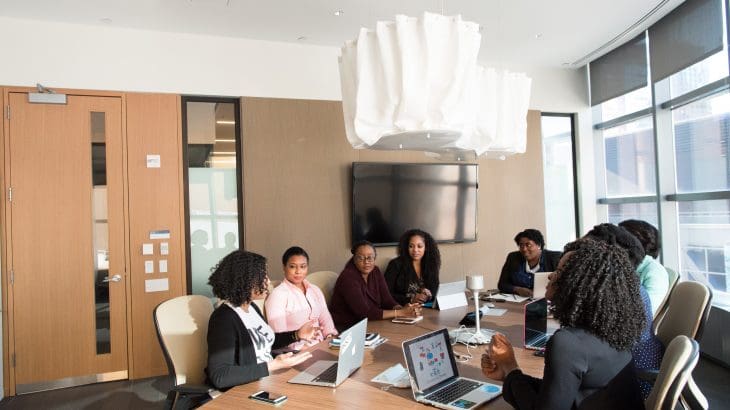Why women working in the energy sector will play a vital role in LAC’s economic recovery
Even before COVID-19, the promise of full gender equality remained unfulfilled in Latin America and the Caribbean despite the fact that women in the labor force improves competitiveness. By one analysis from McKinsey & Company, published prior to the outbreak, the region could have created an additional $1.1 trillion of GDP by 2025, 14% above what can be achieved at current rates of progress toward gender parity. In a full-potential scenario, the GDP uplift could be $2.6 trillion or an additional 34% of GDP, as stated in the report.
Although data still remains scant in Latin America and Caribbean countries, the global pandemic economic fallout has disproportionately affected women in the region.
The region could have created an additional $1.1 trillion of GDP by 2025, 14% above what can be achieved at current rates of progress toward gender parity.
The United Nations Economic Commission for Latin America and the Caribbean has already found women are losing their jobs at a much greater rate than men. The unemployment rate for women in the region will be 15.2% – almost 6 percentage points higher than in 2019.
As we enter Women’s History Month, and as vaccines begin to arrive in the LAC region signaling the beginning of rebuilding efforts, what role will gender parity play in renewable energy and decarbonization initiatives?
We asked five leaders in the region how reimagining full gender equality is a pivotal piece of post-pandemic recovery.
This is what they told us.
“Including more women in the energy sector positively impacts the productivity of companies, which in turn, will help revitalize economies. Different studies have shown that gender diversity is linked to improvements in the performance of companies due to the way we lead and executively manage. Inclusion is a win-win for everyone. We have to close gaps, encourage more women to pursue STEM careers and empower women to be present in every area that is strategic for the development of our countries.”
Irene Cañas, Executive Director, Costa Rican Institute of Electricity (ICE)
“The role that gender diversity plays in the post covid energy sector recovery is primary. It’s the first thing that we should bear in mind. Post-COVID requires that we rebuild our economies from scratch, not what we had but better. In doing so we finally have an opportunity to build a future, not simply one that is just and fair, although that matters, but a future that is more resilient and prosperous. Any number of studies suggest that a more diversified organization leads to better performance period, across a range of measures. Our chance is now to seize the opportunity that this crisis creates, or wait another 100 years of stagnant and unsustainable growth hoping that we end up in the right place.”
Racquel Moses, CEO, The Caribbean Climate-Smart Accelerator
“We have the opportunity to promote a more equitable and inclusive development model, by integrating a gender perspective into energy initiatives; be they policies, programs and projects. Adopting a gender lens in these processes increases the efficiency of these initiatives and helps to identify barriers to implementation, as well as possible benefits that had not been previously considered.”
Sindy Salgado, Energy Policy and Planning Director, Honduran Ministry of Energy
“One positive conversation sparked by the pandemic is about the need to establish more reliable, cost-efficient and sustainable sources of energy in Latin America and the Caribbean. The pandemic highlighted some of the major challenges facing the energy sector in the region, such as operational inefficiencies and a glaring gender imbalance. In LAC only 20 percent of workers in the energy sector are women. Additionally, women are 19 percent more vulnerable due to a lack of representation across sectors that have been significantly impacted by the crisis, including the energy sector. To take advantage of the opportunities presented by COVID-19 the regional recovery effort will require the invaluable contribution of women across all sectors.
As we work with governments to chart a course out of the crisis, we have the opportunity to address both operational issues and the gender disparity at the same time. At the IDB, we are committed to gender equality and our energy projects are embedded with gender equality and diversity initiatives to promote employment and training of women for technical positions. For example, in Suriname, our new energy loan includes a diagnosis of gender equality in the state-owned electric utility and develops actions to remove barriers that limit the participation of women.”
Therese Turner-Jones, General Manager, Caribbean Country Department, Inter-American Development Bank
“The emergence from the COVID-19 pandemic is giving countries the opportunity for a green and inclusive recovery, which embraces the renewables revolution. Highly qualified gender-aware professionals are prepared to tackle issues that will move the needle – for example creating access to renewable energy sources in remote areas through microgrids – enabling female headed households to make a greater contribution to the economic recovery in those communities.”
Diana Wilson Patrick, Vice President Operations (Acting), Caribbean Development Bank
Following the Caribbean and Latin America clean energy market? Track news, events, and hear from leaders in the market when you sign up for our bi-weekly LAC Renewables & Decarbonization newsletter.







